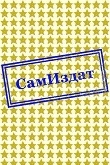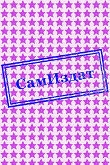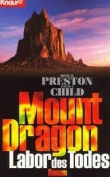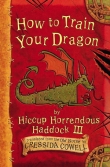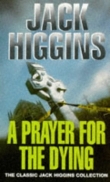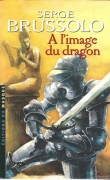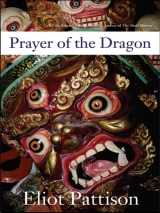
Текст книги "Prayer of the Dragon"
Автор книги: Eliot Pattison
Жанр:
Полицейские детективы
сообщить о нарушении
Текущая страница: 11 (всего у книги 24 страниц)
“He can’t do it,” Shan declared, “because he is right-handed.” He bent, positioned the man’s arm again, and demonstrated how the chopping blow was delivered. “The killer was left-handed. Neither Thomas nor Hostene is left-handed.”
In the silence that followed, Shan paced along the row of miners again, stopping in front of one who wore a soiled wool cap. “How many murders have there been?” he asked abruptly.
The man glanced at Bing, then gazed at his feet without replying.
“How many murders?” Shan asked the next man.
“Some die,” the man said, “some get rich.”
The next, an older man, gazed at Shan uneasily. “Why the hands?” he asked in a hollow voice, as if Shan should know. “A man’s hands are the proof of his life.”
Shan turned back toward Bing. “Keep hiding the truth and someone else will die.” He swept his arm along the line of miners. “Maybe one of you. There are three dead this year for certain. The young miner at the painting of a blue bull, then the two at Hostene’s camp. There were two more last year. The farmer yesterday would make five. Between the first two murders it was, what, ten months? Then the killer took only a month to strike again. If we count the farmer yesterday, the interval was less than two weeks this time. If that’s a pattern, then in five or six days there will be another murder. One of you may be next. Or perhaps it will be a woman who is missing.”
Hostene did not appear to hear Shan’s reference to his niece. He was staring at the rock slab on the ground where Shan had reconstructed the dismemberment of his friends.
Shan turned back to Bing. “Or is she dead already?”
Bing too seemed to be contemplating Shan’s performance. “A woman,” he muttered at last, “wandering alone isn’t safe.”
“Her uncle has to find her,” Shan said. “We all need to find her, for she may have witnessed the murders of her two colleagues.”
No one spoke. Shan studied the ragged group of miners again. Why weren’t they out working their claims? They were worried, Shan realized, even frightened. It was indeed likely that one of them would be the next victim. But it might be as likely that one of them was involved in the killings. He reminded himself that someone had tried to destroy their little party only the day before with explosives. Every man in front of him was an expert with explosives.
“The best chance you have of solving these murders,” Shan said, “is to let us go. And to help us find the woman. Do you have any idea what will happen if an American is reported missing on this mountain?”
“American?” It was one of the older miners who replied. “Impossible. Tibetan. Nepali, perhaps.”
Shan leaned over Hostene, whispering in his ear. The Navajo unbuttoned his shirt pocket and handed Shan something blue and flat.
“She is a professor,” Shan said in a loud voice. “She is famous.” As he lifted the object in his hand, a nervous murmur swept through the crowd. The little blue object was like one of the old charms used in Tibet and China to cast a spell on those who beheld it-a United States passport.
“Shall we speak of what happens when it is discovered that this famous professor is missing? Have you ever wondered how many soldiers can fit in the belly of one of those big planes? Shall we guess how long your secrets will last?”
It was as if a festering sore had been lanced. There was no more resentment, only worry. He walked along the row of miners, catching bits of their conversations. A man with a shaved head spoke of satellite surveillance. Someone else mentioned a movie in which the sky had been darkened with American parachutes.
Bing, looking weary now, picked up the kettle and offered Hostene more tea.
Many years earlier Shan had visited Dunhuang, where mountains honeycombed with caves had once been home to scores of Buddhist teachers and hermits, in which they had sealed away treasures of ancient texts and paintings. The honeycombed caves of Little Moscow had been in use for what Shan guessed to be at least a dozen years and had their own artifacts and shrines. Shan wandered past the miners, who were conversing among themselves, and absorbed, then slipped down a long ravine to examine some of the town’s shrines more closely. He passed a heap of rusty cans and broken tools near the mouth of the gully, under a stripped tree trunk from which dangling ropes and pulleys extended over the lip of the ravine-a boom for lowering heavy objects. He paused at a shelter marked with placards bearing curses, warnings to stay away. Then he peered inside it. A red bike was parked within. Beyond, the soft shale under several overhanging ledges had been chipped away, creating small caves with a domestic appearance. Several bore Chinese names painted on wooden slabs hanging from poles. One pole held a two-year-old calendar with the image of a naked blonde woman posing with auto tires. A wind-frayed photo, torn from a magazine, of a gleaming silver pickup truck, dangled from another. Still another held an advertisement for a casino in Macao. This was how a sacred mountain entered the new age.
Shan glanced back toward the town square, considering what Thomas had whispered to him on his arrival after telling him he had brought the photographs as Shan had requested. If Shan were to set foot on the other side of the mountain, Gao had ordered him shot on sight.There never seemed to be answers on Sleeping Dragon Mountain, only more fear, more riddles.
From the shadows he absently watched the two mah-Jongg players set up a new game, stacking small piles of cash before them. Cash. The miners couldn’t turn their gold into cash until the end of the season, until they left the mountain for the year. He would have expected them to spend their money in the spring, on equipment and supplies. He watched how the other miners glanced jealously at the pair. These two had enough to gamble with, as if the end of the summer had come early for them.
He walked past a den with a canvas front decorated with images of the heads of tigers, then bent and picked up a pebble before studying the next piece of municipal art, a glossy advertising photo of a robot holding a tray of cocktails, pinned above a can full of cigarette butts. On a rock beside the can was an army helmet, painted black with yellow stripes.
A rough voice announced from the shadows within, “Captain Bing has a rule. Anyone caught in another man’s cave is tied to a rock and caned.”
Shan bent and squinted, meeting the gaze of the scarred man in the quilted jacket. “It is you I came looking for. I saw you slip down this alley. Hubei, is that what they call you? After the province?” He had known many criminals who took the name of their homes to hide their real names.
“You played me for a fool once today. Don’t make the mistake of trying it a second time.”
“I was only protecting the boy,” Shan said as he began tossing the pebble from one hand to the other. “If I had seen your arm before, I would have used someone else. Were you imprisoned in Tibet?” Shan had noticed the tattoo on the man’s exposed arm during his earlier demonstration.
“Military prison. Xinjiang,” Hubei replied in a surly tone, referring to the vast area north of Tibet known for its deserts and massive prison camps. “Five years. The first month I was there I thought we would all die of the heat. But it was winter that did the government’s work. In January and February we stacked bodies like firewood.”
Shan rolled up his sleeve and revealed his own tattoo. “404th People’s Construction Brigade,” he explained. “Sometimes when men died, the guards made us bury them right in the roadbed. The bodies were usually still warm.” He looked away for a moment, fighting a sudden ache in his heart. He had never really left the gulag. Unpredictably, abruptly, the tormenting memories resurfaced, so vivid it seemed he was there, the dusty wind in his face, old monks being beaten with batons for mouthing forbidden mantras.
The wiry miner was staring at him, perplexed, and Shan realized the man had been speaking. “I asked, why seek me out?”
Shan said, tossing the pebble again, “I need to know if you and Bing saw the American woman and what she was doing.”
“No one takes gold out of the streams for us,” the man complained. “We don’t have time to wander about watching pretty butterflies.”
“What did you observe?” Shan pressed. “Bing has seen her and I don’t think he ventures far without you. You can cover a lot of ground on that bicycle. The sheep trails are your highways.” He glanced at the helmet. “Every town should have a mounted police force. ”
One end of the man’s mouth curled up as he stared at Shan. “They say you came up from some valley to the south. Go back. Up here, we boil a man like you for soup. You don’t belong. You don’t understand anything. And we don’t need an outsider to tell us who the murderer is.”
“If something happens to the missing woman,” Shan said, “Public Security will need to blame someone. You and I both know they tend to favor former convicts. Makes for good reading in Beijing.”
Hubei frowned. “At first we figured they were just trying to snatch a share of our gold without registering a claim with us. We don’t like newcomers. Bing dealt with them. He warned them to stay out of our way, said he didn’t want to see them again, said if they had to pray to do so secretly. The idiots. Collecting pretty rocks and flowers in a place like this.”
“Pray?”
“That’s what it looked like they were doing mostly, praying in front of those old rock paintings of gods and devils. Or else measuring eyeballs.”
“I’m sorry?”
“I saw the woman again. East of here, up the slope, two days ago. She was alone, and frightened, on her knees, measuring parts of paintings with a small ruler. The eyeball of the demon, the width of his arm. When she saw me she pulled out a pocketknife. I tossed her an apple. She ate it as if she hadn’t had a meal for days. When I took one step forward she pointed the knife at me. I left. None of my business.”
Hubei retreated into the shadows. When he emerged a moment later a pack hung from his shoulder and a pair of battered binoculars was suspended from his neck. Shan tossed the pebble to him.
Hubei caught it and stared at his hand for a moment. “Fuck you,” he snapped. “It doesn’t mean anything.”
“It proves you are left-handed. Do you have any notion how few Chinese are left-handed? It’s against official educational policy. You’re a former convict engaged in an illegal activity, and you’re left-handed. The Public Security report on the murders would almost write itself.” Shan stepped closer to the miner. “Who found that dead farmer?”
Hubei hurled the stone against the opposite wall. “Some of the men. When I saw he was one of theirs, I went to tell some shepherds.”
“Where did you find him?”
“The body was at the base of a ridge that juts out from the mountain, a mile up the slope.” Hubei picked up his helmet and fastened it to a strap on his pack.
“You mean he was on his way down the ridge when he was killed?”
“I mean that’s where he was found. No one from Little Moscow goes up that ridge. I can’t speak for fool farmers and their murderers. Not our concern. I just wanted to be rid of the body.”
Suddenly Shan understood. “Do you mean the same ridge where the man was killed last year?”
“Where we buried him. And where his ghost took revenge on his murderer. It’s haunted. Men saw a skeleton on his grave. Some say it walks up there in the moonlight. Some say they see it elsewhere, as if it’s on patrol in the night. More and more miners come back here to sleep after their day’s work.”
Shan paused, trying to connect the words to the strange video in which Abigail had handled arm and leg bones. “The two that were killed last week,” he said. “What happened to their bodies?”
“If you’re talking about the flesh, I guess the birds took care of it.”
“I don’t understand.”
“Last year, two days after those two died, two new skeletons appeared on that grave. It scared the hell out of everyone, believe me.” Hubei grinned at Shan’s confusion, then twisted past him. “Touch anything and you die,” the man said in an oddly whimsical tone and went toward the town square.
“Where does one get cash in Little Moscow?” Shan called after him. “Up here I would think cash is scarcer than gold.”
Hubei glanced back impatiently. “Banking is a government monopoly,” he quipped, then lifted the helmet and trotted away.
Shan had found more riddles. But he had also confirmed that Abigail Natay was probably still alive. She had survived the attack and continued up the mountain as her uncle had guessed. She was pursuing her work despite the danger, even despite apparently having run out of food. It was as if her life depended on it.
He wandered about the miners’ quarters then paused as he rounded the corner of the square to survey Bing’s new-age community. Every man there, including Thomas, Hostene and himself, was a fugitive of a kind. You couldn’t enter the new world without leaving the old behind.
As he watched, men began moving quickly, spreading an alarm, dispersing, some with packs on their backs, some holding old hunting rifles. Bing stood near Thomas, who had grown pale and was gazing at the ground with a look of shock on his face. The mayor of Little Moscow spoke with a man who kept pointing toward the east, replying to Bing in low, excited whispers. The Navajo was staring at the fleeing miners, at Bing and Thomas, in confusion.
As Shan approached, Thomas said in a grief-stricken tone, “You should be the one to speak. Give him more hot tea, then tell him.”
“Tell him what?” Shan asked Bing.
“A miner ran into town,” Bing reported. “Some mine works were sabotaged this morning, all the stakes removed and left burning in a pile.”
“But the miners sometimes-,” Shan began.
Bing interrupted. “Not this time. Whoever did it left something behind, as a warning. It was a woman’s hand.”
Chapter Six
They ran at a frantic pace at first, following Bing up one ravine and down another, soon emerging onto a sunlit plateau. Bing raised his hand for them to stop as he gazed toward a heap of rock slabs in the near distance. Shan did not miss the instinctive movement of Bing’s hand to his belt at the small of his back.
“Hubei!” Bing shouted. When his lieutenant did not appear Bing cursed, took a step forward, then halted again as a column of smoke began to rise from the heap of rocks. He called for Hubei again, then turned to his companions.
“Wait here,” the former Public Security officer ordered before sprinting back toward Little Moscow. “Not a step farther until I bring help.”
Shan studied the rock slabs. They stood at the base of a steep black ridge that jutted to the west. He glanced at Hostene and Thomas and began to run.
He paused a hundred feet from the fire, crouching to study the scene. If what he had viewed earlier was the town square of the miners’ world, this was its temple. The huge slabs had sheared off a stubby rock tower and fallen at angles against its base, creating the effect of a large irregular spire pointing toward heaven. Those who used it had even printed their particular scriptures onto the entrance rocks with black paint. REJOICE IN WORK, one mocked, a long-ago Party slogan. WAN SUI! proclaimed another rock face– Ten thousand years! – the old salute to the emperor’s health. Then, beside it, FEAR EVERYTHING. Across the main entrance was a rope hung with empty beer cans and one more sign. TOWN HALL, it said.
Hostene caught up with Shan. “The boy’s gone,” the Navajo said.
Thomas was nowhere to be seen.
“He ran as soon as Bing was out of sight,” Hostene explained. “He’d had a bad beating. I don’t blame him.”
Together, they approached the fire. Shan gestured to a boulder. “Wait here.”
“You heard them. A hand was found.”
“I also heard them say claim stakes had been burned.”
The fire near the entrance appeared to have been fueled by blankets that were doused in kerosene. Half a dozen painted sticks, barely charred, lay on top. “But this fire was lit only moments ago.”
Hostene’s reply was to push Shan aside. He lowered his pack to the ground and walked past the fire into the shadowy entrance. Shan glanced back up the slope. Then, seeing nothing, he followed.
Inside was a long table of hewn logs bearing several candles set in empty beer bottles, two of which were lit. Heavy sheets of canvas hung from beams braced in the rock slabs, serving as room partitions. A noise rose from the farthest one, the sound of a clay pot smashing. Hostene pushed past Shan, thrusting aside the canvas. A single candle inside flickered in the breeze that came through a gap in the rear wall. It was a storeroom, lined with baskets, sacks of rice, and small barrels, on top of which lay shards where someone had smashed a ceramic butter lamp against the wall. To one side were two nylon sleeping bags, an assortment of pots and pans, and-something Shan had not seen in years-a small coffee pot. In the center of the floor were two packs, one blue, the other red, each with a rising sun on its flap.
“It’s ours! Our equipment! Our packs!” Hostene exclaimed, then sobered as he saw a piece of dirty cloth on top of the red pack, folded over a lumpy object. He stared at it, suddenly frightened, and did not react when Shan pushed past and lifted a small piece of paper left on the cloth, covered with Chinese ideograms.
“What is it?” Hostene asked in a hoarse voice.
“A death charm,” Shan explained. “Inscribed for the funeral of a family member.” He placed the paper in his pocket, then reached for the cloth bundle and, with a shudder, opened it.
Hostene let out a surprised groan. They saw a woman’s hand with long graceful fingers lifted in what Shan recognized as the wish-giving ritual sign, a mudra. But it was a two-dimensional representation, painted on a piece of plaster, a fragment of a long-faded fresco. In the center of the palm was a white eye. This time Tara, the goddess, had been dismembered.
In the goddess’s hand, inserted near the tip of the fingers, was a small stick with eyes carved on its end.
As Hostene reached out and picked up the fragment, Shan grabbed the straps of both packs in one hand and pulled him back into the main chamber. Hostene paused as they passed the table, set down the plaster, and gestured for Shan to place the packs on the table. For the first time Shan noticed their disproportionate weight. The red was very light, the blue very heavy.
“I told you to stay put,” an angry voice snapped as Shan reached into the blue pack. Bing was not alone anymore. Hubei and half a dozen miners armed with shovels and picks stood behind him.
“What have you stolen this time, old man?” Bing demanded of Hostene.
“It’s mine!” the Navajo muttered. “You can’t-”
Bing grabbed the red pack, upending it onto the table.
Hostene’s protest choked in his throat. The miners, even Bing, retreated a step, revulsion in their faces. The pack contained the hands of as many as six skeletons.
Before Bing could react, Shan shoved Hostene toward the entrance and swung the blue pack, knocking Bing off balance.
“Don’t look back!” Shan shouted to Hostene. “Run!” He reached into the blue pack, flung a handful of its contents at the miners, and ran, too. The miners halted as they saw what Shan had thrown at them. Gold. Someone had dropped dozens of small nuggets into the blue pack.
Only Bing and Hubei made an effort to chase them. Then Shan spun about and with a heave scattered the remaining contents of the open pack across the slope. The nuggets rattled onto the rocky terrain in a wide arc, bouncing, rolling, scattering across the mountainside.
“Nooooo!” Bing moaned and flung himself down the slope, trying to catch the nuggets as they bounced. Then he tripped and went rolling too.
Once, according to legend, there had been monks who ran as a meditation exercise. As he ran, Shan only meditated on death.
A quarter hour later, when Hostene raised his palms and bent, gasping, Shan gestured him into the shadow of a large boulder.
“Someone is still convinced you are the killer,” Shan said.
“Someone? They are all convinced now. I had the hands. I was stealing their gold. We just gave them all the proof they needed.” Hostene straightened and looked back in the direction they had come. “The killer could have been there.”
“Not the killer necessarily,” Shan replied. “But a brother.” He extracted the death charm from his pocket and scrutinized it. “This is a charm to protect the spirit of a dead man. It refers to him as ‘brother’. No name is given, though it says the victim was nineteen years old. And it asks that his ghost be allowed to punish his killer.” Shan followed Hostene’s worried gaze. They began walking up the slope.
“Had you seen it before?” Shan asked. “The hand with the eye?”
Hostene thought a moment. “There was a goddess with an eye on her hand. Beside a blue bull.”
Shan said, “The blue bull painting is where the young miner died.”
“Abigail kept returning to it,” Hostene recalled suddenly.
“Why?”
“She never said. Sometimes she took Professor Ma with her. They would have made videotapes.” He reflected. “But those tapes were not with the others. She must have taken them with her.”
“Can you find the blue bull painting?”
Hostene turned to the south, rubbing his temple as he considered the landscape, then pointed to distant grove of trees. “We can’t risk it. Too close to Little Moscow.”
As he spoke they heard a booming sound on the slope below, and a red rocket shell burst in the sky. Bing was an efficient manager of his little community.
“What does that mean?” Hostene asked.
“Bing’s civil alert system, I would guess. I think the best answer for Bing and Chodron is still for you to be the killer. They were shocked that you were an American, but that will soon wear off. They’ll realize that’s not really a problem so long as you and your niece never leave the mountain.”
“Then we must leave. I should hide.”
“We have to inspect that painting.”
“It’s too dangerous,” Hostene protested.
Abigail kept returning to the blue bull image. I think the killer keeps returning to it too.”
Hostene grimaced, but he led the way to a small clearing surrounded by trees. It took Shan only moments to realize he had seen this shrine before. It was the place on the video where Abigail had passed arm and leg bones to someone who spoke English. The painting was the biggest he had yet seen on the mountain, or would have been, had it not been systematically destroyed by the blows of a hammer. Circular indentations were still visible on several pieces of plaster that had resisted. The surviving fragments showed a graceful shoulder here, the eye of a bull there. But between these fragments something new had been revealed. The destruction of the fresco had exposed a much older painting on the rock beneath it, the faded image of a god with a dragon’s head.
“Did she know about this older image underneath?” Shan wondered out loud.
“She couldn’t have,” Hostene said hesitantly. “In any case she would never have destroyed the fresco.”
“But she kept coming back, as if the key to something was here,” Shan reminded him. “Maybe the painting underneath the blue bull is the real key.” He examined the small panels of robed men and demons wearing human skins that formed a frame around the central deity, the dragon-headed god.
“She sat here,” Hostene said, indicating a flat rock, the one Shan had seen in the video. “Filming every detail of the fresco, that day we waited for Ma.”
Shan looked up. “You came here, the day the mine blew up?”
“Yes. Why?”
“What did she do when Ma returned?”
“She became very quiet when he told her what happened. Then, suddenly, she put on her pack and told us to go back to camp and to stay there.”
“Where did she go?”
“I watched. She went in a new direction, where I had never been.” He turned and gestured. “There.” He was indicating the steep black ridge they had just run from. Shan had not forgotten the description he had heard from the fleeing miner. When the mine blew up, Abigail had gone to “the ridge of the ghosts”.
Their troubled silence was interrupted a moment later by another of the spiraling red rockets. They turned and ran.
Several minutes later they peered over a shelf of rock at the lower slope. Men were jogging below them toward Little Moscow. It would be a perfect victory for Chodron if the miners took revenge on the two men the village headman most wanted out of his life.
Shan asked, “What do they call it in those American western movies when angry citizens trap a suspected criminal?”
“A lynch mob,” Hostene replied grimly as he pointed out another set of miners working their way along the slope to the south. Shan pointed toward the summit and began climbing.
It was early evening when they reached his destination, the maze of shattered boulders and broken rock slabs that led to Gao’s fortress. Hostene collapsed onto a rock, gulping from the water bottle he pulled from his pack. The Navajo, though in remarkable shape for his age, had reached his limit. “I thought we would take shelter in the hermit’s cave,” he said.
“We would have endangered Lokesh, Yangke, and the hermit,” Shan said.
Hostene slowly nodded then gazed guiltily at the empty bottle in his hand. “Was that the last of the water?” In his frantic flight Shan had left his pack behind.
“No matter,” Shan said. “There are springs nearby.” But he had no idea when they would be able to walk safely out onto the slope again. On this side of the mountain a mob of angry miners was searching for them. A lynch mob. And despite their frantic hours since entering Little Moscow that morning Thomas’s whispered warning had never totally left Shan’s mind. If Shan ventured to the other side he was to be shot on sight.
Wearily they climbed through the maze, then crawled into the small gap under a stone slab that had tumbled from the top, finding a niche sheltered deep in the debris that afforded a clear view of the sky overhead. Shan helped Hostene arrange his blanket against the wall and, as the light faded, shared the only food they had left, half a dozen kernels of dried cheese.
“What Bing said about me wasn’t exactly the way of it.” Hostene’s voice was aimed toward the stars. “I wasn’t stealing. It was for Abigail.” In a near whisper he explained that his niece had been convinced that the ancient mine they had discovered had to be kept secret from the miners. On an old stone altar near the entrance to the mine, under an overhanging rock, they had seen a copper statue of an old god. It had been hollow, in the traditional style, with offerings inside and what sounded like small stones when they’d picked it up.
“Gold,” Shan suggested.
“Ma and Tashi were certain of it. The first day we were there they left a little offering on the altar. After that, we all did. But the copper statue was stolen one night.”
“I thought the place was a secret.”
“It was supposed to be. Tashi was very distressed. He emptied his pockets and put everything on the altar as if to appease the gods, then when the sun went down he took me to a miners’ camp about a mile away. The miners were asleep. I turned on my flashlight and saw the old statue. When I dashed in to take it, one of the men woke up. He fired a pistol at me. I kept running. But when I reached a safe place and could look, I saw that the back of the statue had been pried open with a chisel. It was empty. The old prayers that would have been inside must have been burned. I didn’t steal any gold. But that’s what they thought I was trying to do.”
“How much later was the mine struck by lightning?”
“Two days later.”
Hostene said no more as he moved about trying to find a comfortable sleeping position.
Bing. Bing was the one who had declared Hostene a thief, and Bing’s hand had reflexively reached for a pistol in his belt. But why, after finding out about the old mine, would he destroy it? Why destroy a depleted mine?
When Shan leaned back, he meant to close his eyes for only a minute or two. But when he opened them it was night, and he could hear Hostene’s heavy regular breathing. Pulling the blanket around the Navajo’s shoulders, he crawled out of their shelter, quietly backtracked, then climbed up one of the leaning slabs to the top of the chasm wall, following its edge in the moonlight to where it opened onto the main slope. He dropped and crawled the last twenty feet then, lying on his belly.
A mile away, toward Little Moscow, lay the long black hulk of the ridge that jutted to the west, the haunted ridge where skeletons gathered around a grave. That afternoon vultures had hung over the ridge. Two days before, a farmer had died there, struck by lightning. Why had he been there? He must have been following someone at Chodron’s order, since no one went up there voluntarily because of the ghosts. No one but Abigail Natay.
It was the hour when Lokesh said the wind scoured the last light from the bowl of the sky, revealing with each gust another hundred stars. A thin silver ribbon, the closest stream, wound its way across the blackened slope a quarter mile away. A bright speck appeared near the horizon, a planet. And another on the ground, a fire. Half a mile below them, a camp had been laid out. The fire, rapidly growing, was much bigger than the miners would need for cooking. It was a warning. Or was it a distraction? Their pursuers sought to lull them into thinking they had stopped for the night but, as he watched, a pair of men were silhouetted against the silver reflection of the stream. Fortunately, they had none of the skills of the old Tibetan wolf hunters who could blend invisibly with the night shadows.
A goat bolted across the shadows, running hard from an outcropping, away from the pair of men Shan had seen. No doubt another pair of searchers lurked near the outcropping. The miners were systematically sweeping the slope above Little Moscow. If they found nothing they would begin searching the gullies in the morning, one by one, sealing each with a guard as they did so. Bing had learned well from his years in the Public Security Bureau.

